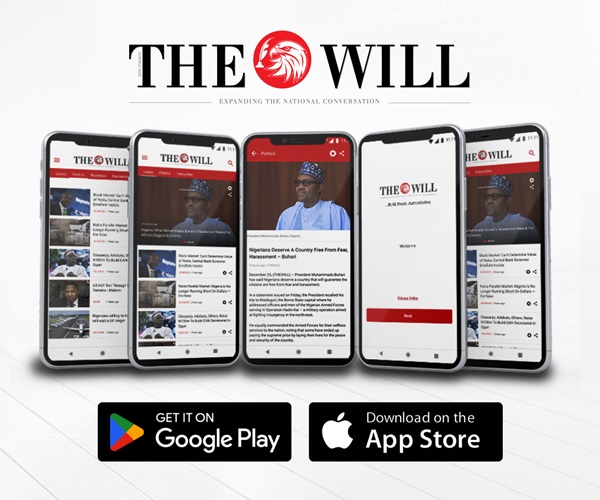February 10, (THEWILL) – President Bola Ahmed Tinubu’s leadership in Nigeria so far presents a mix of strengths and weaknesses, particularly in the context of leading a plural nation with diverse ethnic, religious and socio-economic complexities.
STRENGTHS
Visionary Economic Reforms: Tinubu has demonstrated a long-term economic vision, implementing significant structural reforms such as the removal of the fuel subsidy and the unification of the foreign exchange market. His visionary zeal cannot be ignored. These policies align with a strategy for economic sustainability, though they have caused short-term hardships.
Infrastructure and Development Focus: The Bola Tinubu Administration has pushed for strategic infrastructure investments, including road networks, rail expansion, and the establishment of specialised institutions like the University of Environment in Ogoni land. This approach shows an inclination toward inclusive development, particularly in historically marginalised regions.
Political Experience and Network: As a former governor of Lagos State, Tinubu has leveraged his governance experience and political network to build a broad coalition, ensuring relative stability in governance. His history of transforming Lagos into an economic hub suggests a capacity for long-term institutional development.
Security Initiatives: Tinubu has taken steps to revamp Nigeria’s security architecture, including military leadership restructuring and regional security collaboration. However, the impact of these measures remains a work in progress.
Inclusivity in Appointments: The current administration has made efforts to reflect Nigeria’s diversity in ministerial and institutional appointments, aiming to foster a sense of national unity and representation.
WEAKNESSES and CHALLENGES
Economic Hardships and Inflation: While Tinubu’s economic policies are strategic, their immediate impact has led to significant hardship. High food inflation, rising cost of living, and unemployment have fueled public discontent, with many Nigerians struggling to meet basic needs.
Unintended Consequences of Reforms: The removal of fuel subsidies and forex policy changes, though necessary for long-term economic stability, were not accompanied by sufficient cushioning measures. The government’s palliative measures have been criticized as inadequate, and many Nigerians feel the brunt of these policies without clear short-term relief.
Leadership in a Plural Nation: Managing Nigeria’s diversity requires delicate balancing, and while Tinubu has made efforts at inclusiveness, some critics argue that certain appointments and policies have favoured specific political or ethnic groups. A more deliberate approach to addressing regional grievances, especially in the South-East and some parts of the North, is still needed.
Security and Governance Challenges: Despite leadership changes in security agencies, banditry, insurgency, and kidnappings remain prevalent, affecting investor confidence and economic stability. The effectiveness of new security strategies is yet to yield significant results.
Public Trust and Political Opposition: While Tinubu enjoys support from his political base, growing public frustration over economic difficulties has eroded trust in his administration. Opposition voices have also accused him of maintaining a political patronage system rather than fully embracing meritocracy in governance.
President Tinubu’s leadership so far shows a leader with a strong reformist drive and a long-term vision for Nigeria’s economy and development. However, the immediate consequences of his policies—rising inflation, economic hardship and lingering security concerns pose serious challenges to national stability. His success as a leader in a plural nation will depend on how well he navigates these short-term difficulties while ensuring that his reforms ultimately lead to broad-based economic growth, improved security and an inclusive governance structure that earns the trust of all Nigerians.
If he can mitigate the immediate pains and sustain his developmental vision, he has the potential to leave a lasting positive legacy. I have a strong feeling that if President Tinubu can continue to work in line with his vision and turn around the country for good as a true nation state, he will be the best President Nigeria will ever have.
***Written by Paschal Ebhohimen





